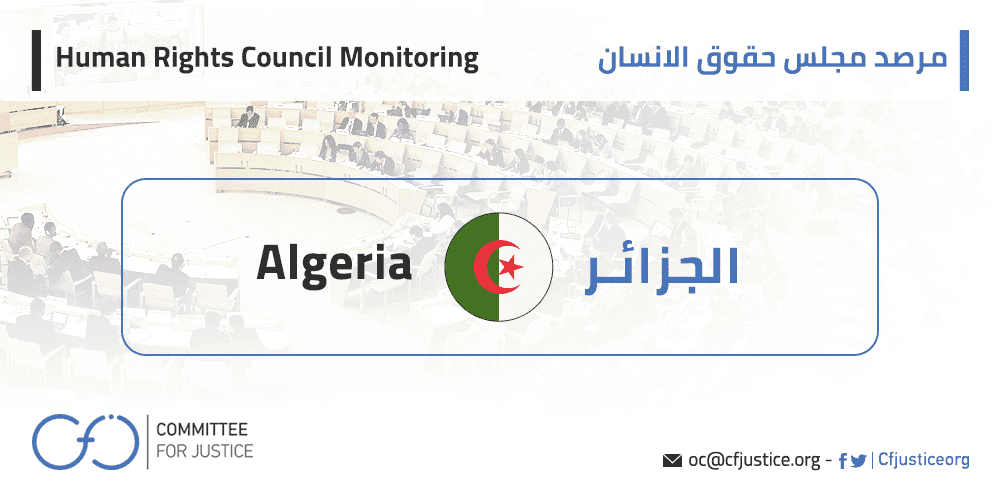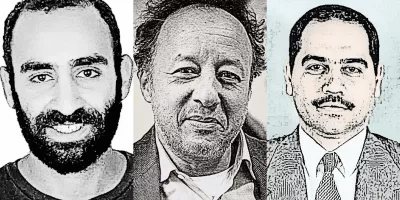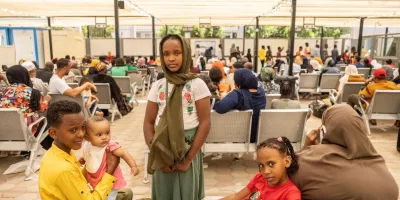News briefing:
Translated and edited by: Committee for Justice
Geneva: December 30, 2021
UN experts issued a memorandum with comments and proposals on some of the laws related to the field of security and combating terrorism that were recently approved in Algeria, especially the amendments to the Penal Code.
In their memorandum issued on December 27, 2021, the experts expressed their concern that the adoption and implementation of these legislative texts would lead to massive violations of human rights and fundamental freedoms, in particular, the right to freedom of expression, association and peaceful assembly, the right to personal security, and a fair trial.
Defining terrorism and listing it:
The experts expressed their concern about the definition of “terrorism” in the new version of Article 87 bis of the Penal Code, stressing that it is not in line with the internationally recognized definitions by the Security Council and the mandate of the Special Rapporteur on the promotion, definition, and protection of human rights and fundamental freedoms in the fight against terrorism. The experts stressed that the current wording of the article may allow the authorities to prosecute on terrorism-related charges individuals with committed non-lethal crimes. Among the possibilities set out in the article are: obstruction of movement or freedom of movement, occupancy of places public, the attack on the symbols of the Nation and the means of communication, the desecration of graves and degradation of facilities.
The experts added that the registration on the list must be subject to a number of guarantees. The first is the right to be informed. This right includes the right to be informed of the inclusion on a list, of a possible delisting procedure, of the existence of humanitarian exemptions and how to obtain them, and the reasons for registration on the list. The right to be informed of the reasons for registration is a prerequisite for a reasoned and argued challenge to this registration.
The experts noted that all the members of the commission are subject to the executive power and come, for the most part, from state security. It would seem that no representative of the judiciary, the legislative power or the national human rights committee is not intended to integrate said committee.
There is also nothing in the decree that indicates judicial or legislative oversight of the activities of the committee, meaning that in the absence of a change in the law, there will be no judicial appeal against the decisions of this body.
Restrictions on freedom of association:
Law no 20-06 also introduces article 95 bis into the Penal Code, which punishes with “imprisonment of five to seven years and a fine of 500,000 DA to 700,000 DA, anyone who receives funds, a donation or an advantage, by any means, from a State, an institution or any other public or private body or any legal or natural person, inside or outside the country, to perform or incite to carry out acts likely to endanger the security of the State, the stability and normal functioning of its institutions, national unity, territorial integrity, the fundamental interests of Algeria or the security and public order.” The experts emphasized that this article, with its particularly vague terms, gives the authorities great discretion, allowing them to prosecute human rights defenders and other activists who receive foreign funds.
The experts explained that it would be sufficient if their awareness-raising activities or their criticisms were considered as an attack on national unity or on the normal functioning of institutions by a state authority for this to lead to criminal persecution. This measure constitutes an obstacle to international cooperation between associations or with other foreign organizations such as academics or employees of research centers.
International demands from Algeria:
At the conclusion of their memorandum, the experts called on the Algerian authorities to provide information on the reasons for the scope and extent of these laws, and how they respect the principles of accuracy and legal certainty stipulated in the Covenant, as well as a definition and additional details of the terms used in these legal texts in light of the observations contained in this memorandum, with the aim of ensuring effective protection rights that may be affected by these legal provisions.
The experts also called on Algeria to provide information on the measures it has taken and/or intends to take so that the legislative texts that are the subject of this communication comply with Algeria’s obligations under international law and in accordance with the recommendations made by the Human Rights Committee during the period of Algeria’s rule.
The experts also asked Algerian authorities to provide information on the measures taken to ensure that the implementation of the provisions of these legal texts will not violate human rights, in particular the right to liberty of expression, freedom of peaceful assembly and association, legitimate and peaceful work of human rights defenders and right to a fair trial.






